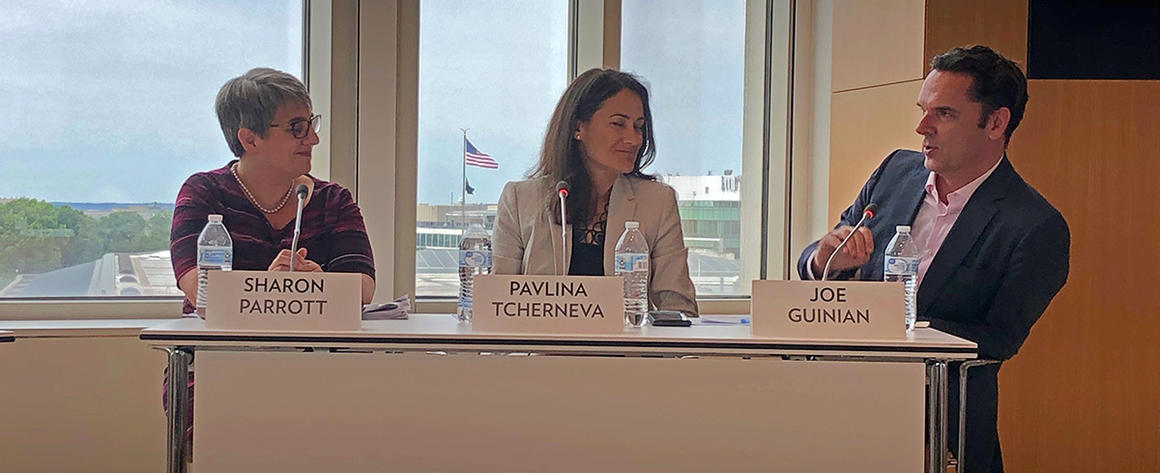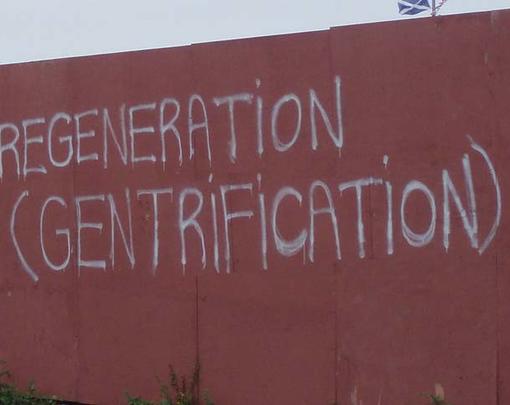The Next System Project’s Joe Guinan called for a “democratic ownership revolution” at a Washington forum organized to discuss strategies for addressing extreme wealth inequality in the United States.
In a nation where 400 individuals own as much wealth as the bottom two-thirds of Americans, “we need to go right to the heart of the institutional relationships in the economy that are creating these outcomes,” Guinan said, and giving workers an ownership stake in their workplaces is one of the keys to doing that.
The panel at the forum, “Raising Incomes in America: Debating the Best Path Forward,” also featured Sharon Parrott of the Center for Budget and Policy Priorities and Pavlina Tcherneva, an economist at Bard College and the Levy Economics Institute. Parrott is a leading advocate for expanding the earned income tax credit; Tcherneva champions a job guarantee.
The “silver tsunami” of baby-boom business owners who are looking to retire “opens an opportunity to bring about a massive expansion of worker ownership so that people can benefit directly from the ownership and control of capital,” Guinan said.
Recently signed legislation that makes technical assistance available through the Small Business Administration for worker-ownership transitions is one step in that direction, he said. But a major breakthrough would be an “inclusive ownership” law that would require large corporations to place a percentage of their equity into a worker-controlled ownership fund that would pay dividends to workers and vote on their behalf at board meetings. This proposal has been put forward by the Labour Party in the United Kingdom and has been embraced in the US by presidential candidate Sen. Bernie Sanders.
“These very large-scale possibilities are the kinds of responses we need that are commensurate with the scale of the challenges,” he said.
Also at the event, Rep. Ro Khanna, D-Calif., said in a brief address that many of the redistributive remedies that have been proposed to raise the incomes of working and lower-income Americans are “not aspirational enough” because they do not get to the crux of the inequitable distribution of wealth in the economy. “It’s not enough to redistribute post-production; we need to figure out how to democratize the economy pre-production,” so that all people have opportunities to create wealth.
Robert Hockett, law professor at Cornell University and fellow at The Century Foundation, concluded the forum by saying that while he was an “all-of-the-above” proponent of strategies for raising incomes, “spreading the ownership of capital in the long run is preferable,” in part because “ownership solutions tend to be more stable” and “if you own something, it is much more difficult for it to be taken from you.”





